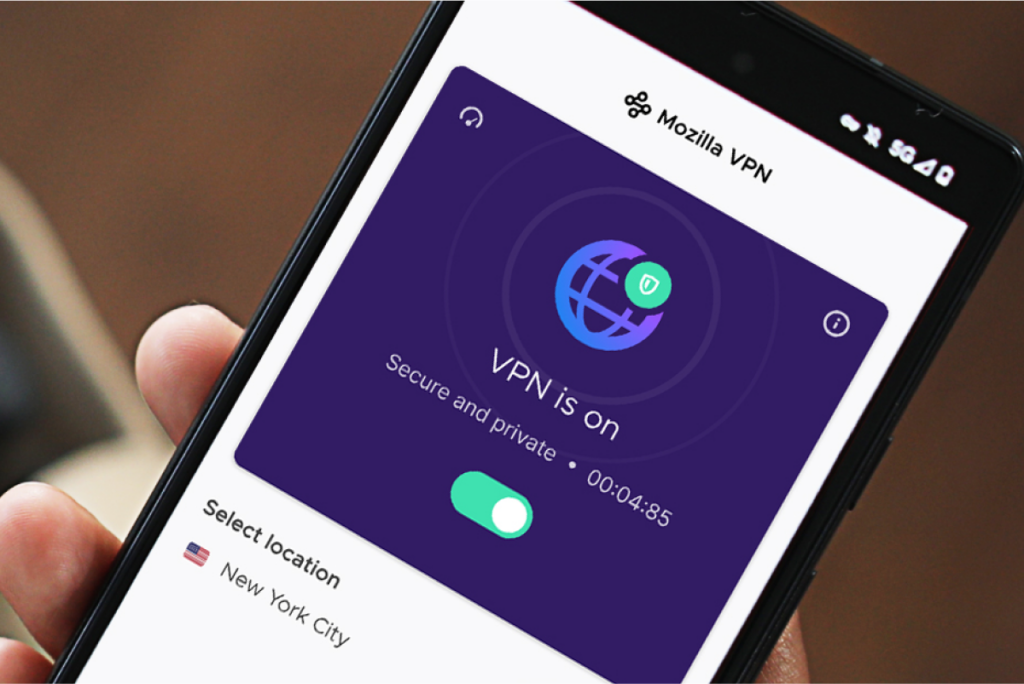Are Free VPNs Secure?
Share

Are Free VPNs Secure?
VPNs are excellent online tools. They secure your traffic, help you bypass censorship, and let you unblock Netflix, Hulu, Amazon Prime, and more.
But wouldn’t it be cool if you could do all of that for free?
That’s where free VPNs come into play. As VPNs become increasingly popular, people are using them more often. But they’re mostly looking for free VPNs (for obvious reasons).
Well, we understand why free VPNs are so popular. But here’s the million-dollar question: Are they safe to use?
The tl;dr is that no, they aren’t. We’ll tell you why in this quick article and why they aren’t fun to use.

How Free VPNs Can Compromise Your Data
Here are the main reasons why free VPNs aren’t safe to use:
The Log and Sell Your Traffic
Many free VPNs have vague privacy policies that don’t say, “Yes, we log and sell your data to make money.” Instead, they use complicated lawyer talk to hide their true intentions.
Here’s what happens: Your free VPN will keep usage logs containing your online browsing. The company then sells this information to advertisers for a big profit.
It’s shady, sure, but as long as you agree to the TOS, you can do nothing.
They Expose You to Ads
If free VPNs don’t log your data, they’ll display annoying ads inside their apps. Again, it’s a way to make money.
Surely, you didn’t expect a free VPN to be completely “free.” The provider still has expenses—renting servers, server maintenance, legal fees, taxes, staff salaries, etc. And since they don’t charge for their services, they need to make money somehow.
They Expose You to Malware
This is especially true for random free VPNs you find on Google Play. They ask you to enable many permissions that compromise your privacy, like giving the VPN access to your contacts, photos, or messages.
Besides that, the free VPN might also install malicious software on your device. Or they might directly infect your device with adware, spyware, or even ransomware.
They Sell Your Bandwidth
Some free VPNs use a peer-to-peer business model, which they say allows them to offer a completely free service.
Sounds nice, but what’s going on behind the scenes?
In 2015, a popular free P2P VPN called Hola was caught logging and selling user bandwidth to whoever wanted to pay for a botnet! Who did they sell it to?
Other Reasons Why You Shouldn’t Use a Free VPN
Besides not being secure, here’s why else using a free VPN isn’t a good idea:
They’re Very Slow
Free VPNs usually don’t use fast servers because they can’t afford them. Also, their server networks are either too small or too overcrowded. Whatever the case, you’ll have slow speeds.
We ran multiple tests to confirm this. With most paid VPNs, our speeds dip by around 20-30%. But we experience 50-60% slowdowns when we use free VPNs.
They Have Bandwidth Caps
Free VPNs can’t afford unlimited bandwidth like most paid VPNs. So, they impose data caps. Our research shows that the average monthly data cap is between 500 MB and 2 GB. That’s not enough if you want to use a VPN to stream content or download torrents.
To put this into perspective, Netflix consumes around 3 GB per hour when watching HD videos. You’d barely get to watch a few episodes of your favorite series before your bandwidth limit is up for the month.
They Have Buggy Apps
With free VPNs, it’s normal to use apps that crash frequently, have features that don’t work, or have bugs that make the app unusable.
The providers don’t have the resources to invest in a good dev and QA team. Maybe it doesn’t seem like a huge problem, but a buggy VPN app could compromise your data through:
- Poorly-configured encryption.
- IPv6, DNS, or WebRTC leaks.
- Faulty kill switches (which results in traffic leaks).
They Don’t Have Good Customer Support.
Maybe you’re experiencing an issue that stops you from using the VPN app. Your first instinct is to contact customer support.
Unfortunately, this might not work in this case. Free VPNs don’t offer 24/7 live chat as paid VPNs do. And even the email support they offer isn’t good. They generally take 72 hours or more to reply, and the answers aren’t beneficial.
They Don’t Reliably Unblock Streaming Sites.
Most people use VPNs to watch shows and movies on sites like Netflix. The bad news is that you won’t be able to do that with a free VPN.
Why?
Because Netflix (and other streaming sites) easily block free VPNs, these services don’t have enough money to refresh their IPs regularly.
At best, a free VPN will only allow you to unblock lesser-known streaming sites. However, we could generally unblock free streaming sites like The USA Network and VRV.
How to Find a Paid VPN That’s Very Secure
Just because a VPN has a paid plan doesn’t mean it’s 100% safe. It could still leak your data and have a kill switch that doesn’t function well (so your traffic will be leaked).
With hundreds of VPNs on the market, finding the right one is nearly impossible. But you can narrow down your search. Check out this page for a list of secure VPNs. It’s written by an expat who works with ProPrivacy, one of the biggest VPN review sites on the Internet. It’s chock-full of helpful information and has affiliate links that help you save money when signing up for a VPN.
The Bottom Line
Free VPNs aren’t secure at all. It’s better to be safe than sorry and stick with a paid VPN. Most top VPNs have risk-free refunds and cheap long-term plans.
We’d like to hear your opinion, though. How do you feel about free VPNs? Please let us know in the comments.








